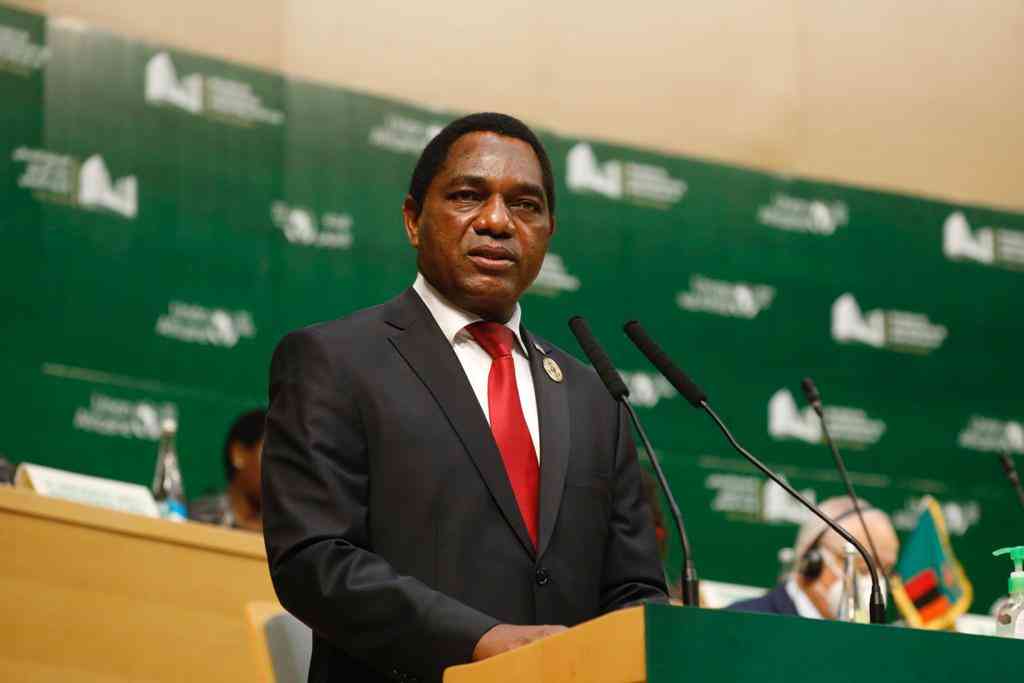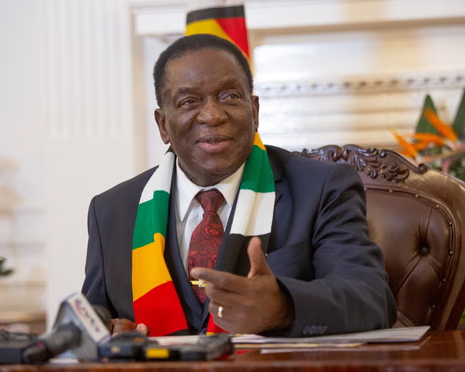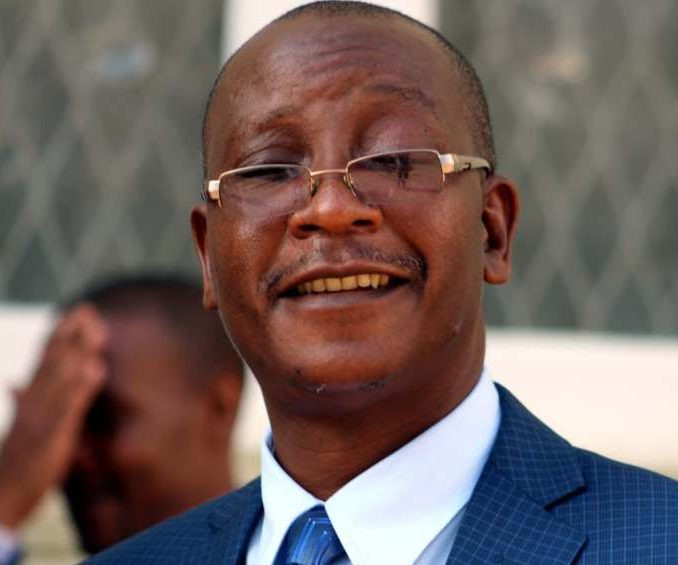
As President Hakainde Hichilema of Zambia made his annual address to parliament on 13 September, he shocked many observers as he made a series of revealing off-the-cuff remarks on the topic of constitutional reform.
“The country has failed to reach consensus on this very important national document over many years. As a country, therefore, we still need to reform our constitutional order,” he announced. “This government is committed to facilitate a least cost, efficient, and credible process [of constitutional reform] to address lacunae, omissions, or oversights in our constitution.”
“After all,” he continued, “some lacunae can lead us to a situation where we could have no general election for eight years. That is not a joke. Yes, we could have no elections for eight or nine years.”
Many organisations and individuals condemned Hichilema’s threats to change the constitution. Former president Edgar Lungu described his comments as “reckless” and urged Zambians to “stop this apparent dictator from tampering with our Republican constitution in order to extend his stay in power”. Opposition parties accused Hichilema of misunderstanding the constitution and of attempting to distract from issues such as mass hunger, the cost-of-living crisis, and power cuts lasting 21 hours per day.
Since coming to power in August 2021, Hichilema has built a track record of undermining democratic institutions in a crude manner. If Zambians wish to reclaim their democratic institutions, they would do well not to underestimate Hichilema and the lengths to which he is prepared to go in his bid for absolute power. His comments about the constitution and misleading warning that Zambia could have no general elections for eight years should be seen as part of his wider strategy to stay in power beyond elections scheduled for 2026.
Preparing the public’s mind
President Hichilema’s remarks were directed at different audiences for different objectives.
The first was the public. He likely wished to prepare the minds of Zambians that constitutional reform is coming and reassure them that the exercise would be cheap, time efficient, and necessary to remove problematic clauses. It was also a warning that he is performing a major U-turn.
- Global agency downgrades Zimbabwe’s growth projections
- Sudan Darfur crisis: ICC to try war crimes suspect
- Zim to get Malawi maize this monthend
- Global agency downgrades Zimbabwe’s growth projections
Keep Reading
Over the past year, opposition members and others accused the government of scheming to amend the constitution to extend presidential term limits from five to seven years and remove the requirement that a winning presidential candidate must secure a minimum of “50% + 1” of the total vote.
In October 2023, for instance, eleven opposition parties wrote a joint open letter in which they criticised the commencement of a process to change the constitution. “We are alarmed that there are secretive efforts aimed at amending the Republican constitution in which people are being asked to submit recommendations on non-contentious issues”, it read. “Given the lack of criteria on what constitutes non-contentious, we do not think that these non-transparent efforts represent the best way of carrying our constitutional reform forward.” Then, in July 2024, Lungu, who presided over the 2016 constitutional amendment, urged Zambians to “oppose and stop President Hichilema from taking Zambia back to autocracy and tyranny through these [ruling] UPND arbitrary schemes to alter our constitution only to suit their agenda”.
On August 2, Hichilema responded to these allegations by assuring Zambians he has no plans to alter the constitution. He criticised “the distorted narrative being peddled by the opposition”, vowed to “uphold and defend the constitution”, and touted his lack of “interest in manipulating it for…personal benefit”.
This reassurance earned Hichilema plaudits, including from the highly regarded constitutional lawyer John Sangwa. In a letter, Sangwa commended the president for clarifying his position and noted that “it represents a radical departure from what we have witnessed in the last sixty years”. “Since independence in 1964,” he wrote, “all your predecessors either initiated or continued the process to make a new constitution or amend the constitution. Their motivation, invariably, was the desire to use the constitution as a political tool to further their personal benefits…It is laudable that you have so far not succumbed to this temptation.”
Barely a month later, Hichilema has changed course. By claiming that Zambia “could have no general election for eight years” unless it reforms the constitution, he seems to have finally confirmed that he will table a constitutional amendment bill to parliament ahead of the next elections.
Mobilising MPs
The second audience Hichilema was speaking to are MPs from the governing UPND, opposition parties led by the Patriotic Front (PF), and independents. On this front, he has three objectives.
Firstly, Hichilema was urging MPs to support his changes to avoid the general election being delayed. The source of this warning is the current constitutional provision that requires an election to be postponed if a candidate drops out of the race. Article 52 (6) of Zambia’s constitution provides that: “Where a candidate dies, resigns or becomes disqualified in accordance with Article 70, 100 or 153 or a court disqualifies a candidate for corruption or malpractice, after the close of nominations and before the election date, the Electoral Commission shall cancel the election and require the filing of fresh nominations by eligible candidates and elections shall be held within thirty days of the filing of the fresh nominations”.
Based on this provision, Hichilema may be right to note that, in theory, an election could be perpetually postponed if party candidates kept on resigning before the poll was held. However, the chance of a general election being continually delayed is hard to imagine. A “general election”, according to Article 266 of the constitution, describes “Presidential, National Assembly and local government elections when held on the same day”. The constitution also states that: “A general election shall be held, every five years after the last general election, on the second Thursday of August”.
Under Article 52 (6), a certain contest that forms part of a general election may be postponed if a candidate drops out, but all the hundreds of other races would proceed as normal. A general election as a whole would only be delayed if a candidate from every race — presidential, parliamentary, and local — died, resigned, or was disqualified in the period between approved nomination and voting. The notion of this happening once, let alone repeatedly for eight years is far-fetched, to say the last.
Hichilema’s fearmongering about Article 52 (6) demonstrates his desperation and opportunism. After all, he supported the provision when he was in opposition, stating in early-2021: “That article is in good faith. If the election is postponed for 30 days to remove an imposter from the ballot paper, [that is] perfect…If 30 days are a price we have to pay in order for the people of Zambia to get a leadership that will…end violence, corruption, a leadership that will bring credibility and restore the Kwacha, stop people [from] sleep[ing] without food, 30 days is a good price to pay.”
In fact, Hichilema broadly supported the 2016 constitutional amendment as a whole. It could not have passed without the support of his party’s MPs. His assertion that Zambians have previously “failed to reach consensus on this very important national document over many years” is incorrect. The 2016 constitutional amendments were products of consensus, as were the 1991 changes before that.
Along with scaremongering, a second objective of Hichilema’s recent speech was appeal to MPs’ self-interest in the hope of their support. For a constitutional amendment bill to pass in Zambia’s 167-member National Assembly, it requires at least two-thirds support (or 111 MPs). Given that the ruling UPND has just 93 MPs, the success of Hichilema’s plan will require the backing of some other lawmakers, including at least some from the main opposition PF.
In his speech, the president dangled a carrot in front of them by promising to deliver certain changes as part of the process. One is to reverse the 2016 amendment that removed MPs from sitting on municipal councils, a move that weakened their powers of local authorities and undermined their ability to profit through increased business opportunities. Another is to redraw constituency boundaries to make them smaller. Some MPs have blamed their failure to deliver services and the high turnover at elections on the large size of their constituencies. A final incentive for to MPs to support changes to the constitution, though not one mentioned in Hichilema’s speech, comes from claims that the president intends to extend presidential terms to seven years. If applied to parliamentary terms too, this could appeal to MPs looking for greater security in their positions.
Here, we see that the would-be content of this “very important national document” will reflect the aspirations not of citizens but of those in power, primarily the president and governing party. Gerrymandering would mostly increase the number of constituencies in regions that have historically voted for the ruling party, facilitating an even greater majority for the UPND and making it easier for it to make further changes to the constitution in the future.
It is worth noting that Hichilema has spent much of his term in office attempting to secure the two-thirds majority he needs to amend the constitution. For instance, he bid to take control of the main opposition through his proxy Miles Sampa, whose sham election as president of the PF has been heavily contested by other party members. This plan hit a roadblock, however, when opposition MPs refused to cooperate with Sampa and legally challenged their resulting expulsions from the party.










